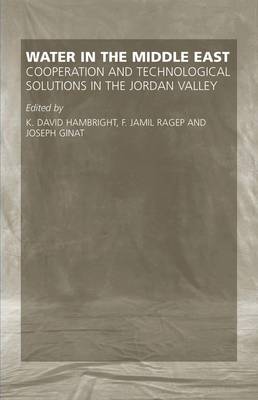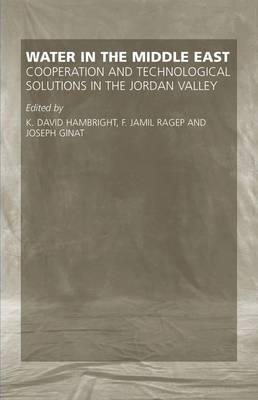
- Retrait gratuit dans votre magasin Club
- 7.000.000 titres dans notre catalogue
- Payer en toute sécurité
- Toujours un magasin près de chez vous
- Retrait gratuit dans votre magasin Club
- 7.000.0000 titres dans notre catalogue
- Payer en toute sécurité
- Toujours un magasin près de chez vous
Water in the Middle East
Cooperation and Technological Solutions in the Jordan Valley Volume 3
Description
Scarcity of water is a problem in many areas around the world. In this sense the Middle East which suffers from frequent droughts and a shortage of potable water, is not unique. However, when political disagreements among states combine with issues of fair and equitable access to common water resources, the problems associated with water scarcity seem intractable. In this sense the Middle East, and particularly the Jordan River Valley, is indeed unique.
This enlightening book brings together the insights of scholars from Israel, Palestine, Jordan, and the United States who employ a broad range of perspectives and disciplines-engineering, agronomy, biology, economics, history, geography, and political science-to examine the significance of water in Middle East conflicts. These contributors do not offer facile remedies. Rather they show that any solution must be achieved within a political and social framework of peace, enlightened economic policies, and technical measures that take due account of environmental conditions.
This volume is the result of the conference "Water in the Jordan Valley," sponsored by the Center for Peace Studies, a division of the International Programs Center at the University of Oklahoma.
Spécifications
Parties prenantes
- Editeur:
Contenu
- Nombre de pages :
- 256
- Langue:
- Anglais
- Collection :
- Tome:
- n° 3
Caractéristiques
- EAN:
- 9780806137582
- Date de parution :
- 01-01-06
- Format:
- Livre relié
- Format numérique:
- Genaaid
- Dimensions :
- 152 mm x 229 mm
- Poids :
- 551 g

Les avis
Nous publions uniquement les avis qui respectent les conditions requises. Consultez nos conditions pour les avis.





